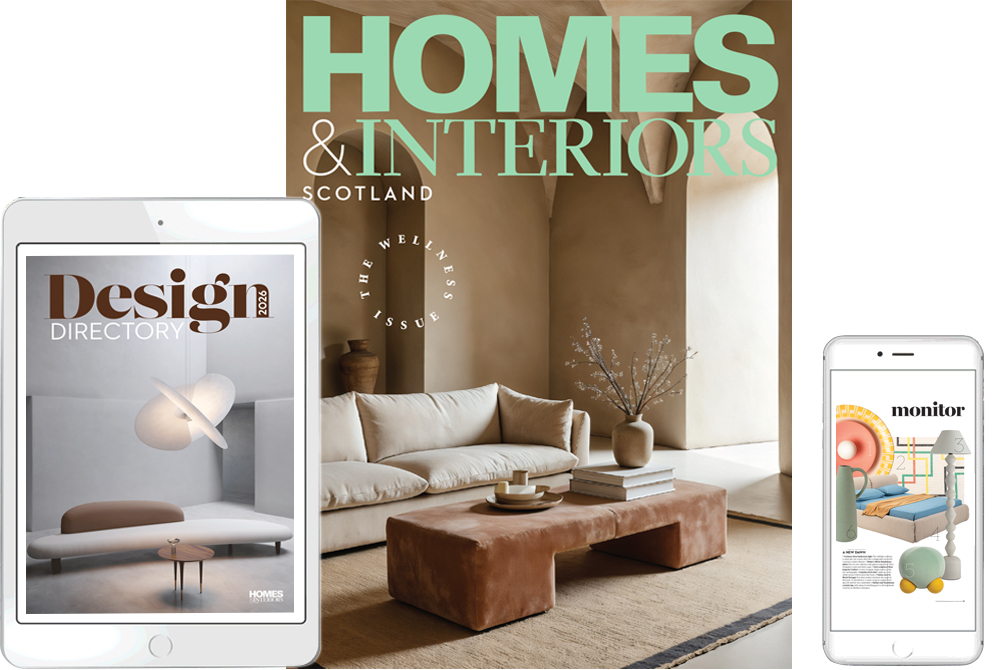A townhouse on one of Edinburgh’s finest terraces finally has an interior that lives up to its architecture
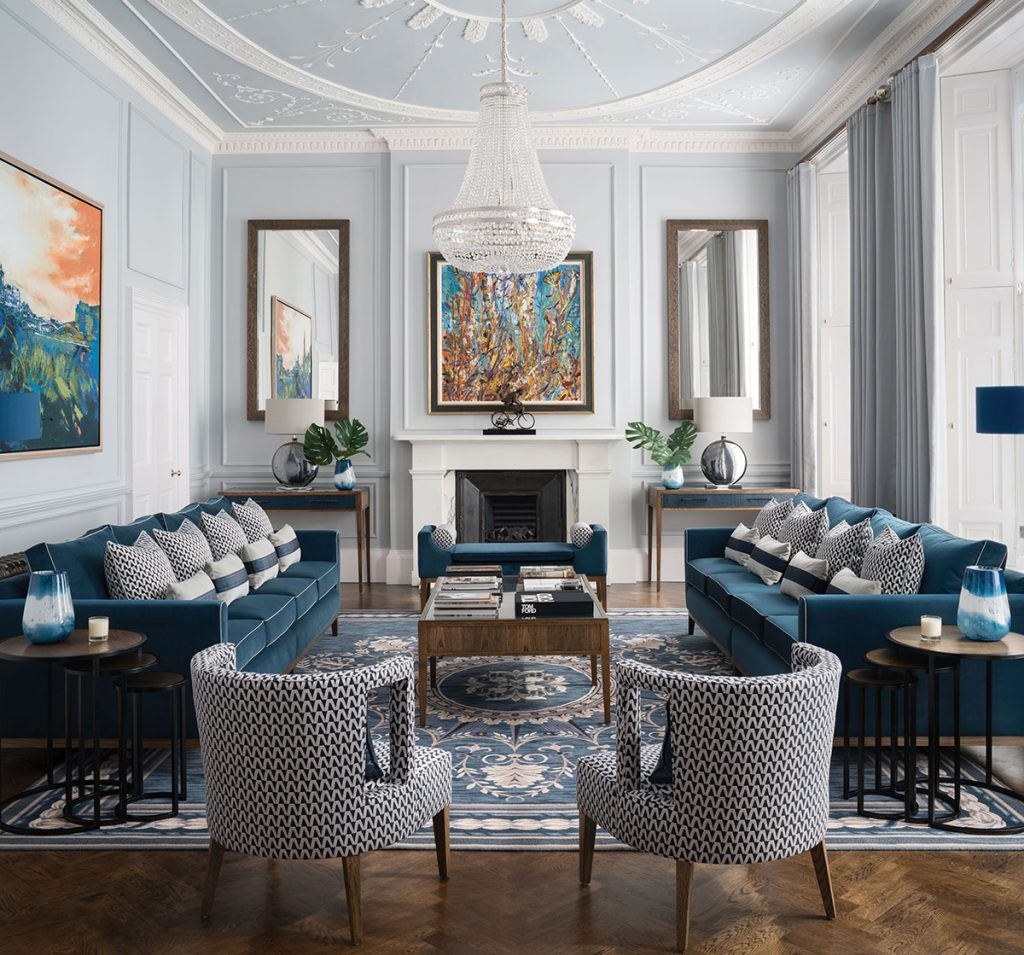
DETAILS
What A five-storey Georgian townhouse
Where New Town, Edinburgh
Interior designer Malcolm Duffin Design
Photography ZAC and ZAC
Words Judy Diamond
Too many people, believes Malcolm Duffin, are afraid of colour. They worry that any deviation from neutral will feel unsophisticated, that colour will overwhelm their home, or that they’ll simply get it ‘wrong’. It’s this kind of fearful thinking, he says, that leads so many of us to choose safety over self-expression – with insipid, uninspiring surroundings the inevitable result.
What the interior designer has done here, in a Georgian townhouse in Edinburgh, shows just how liberating it can be to go bold with the paint chart. A controlled palette of blues – navy, indigo and cobalt, linked by a thread of sapphire – has unified the property and created something truly memorable. “I am never afraid of colour or of making an impact,” says Duffin. “I can’t stand it when rooms turn out beige, dreary and mundane.”
The house, in Heriot Row in the New Town, was in reasonable condition when it was purchased in 2017, but the new owner was keen to have it refurbished to better reflect its quality and rarity. “An intact five-storey townhouse like this hardly ever appears on the open market,” notes Duffin. “The layout is unchanged since it was built in 1804.”
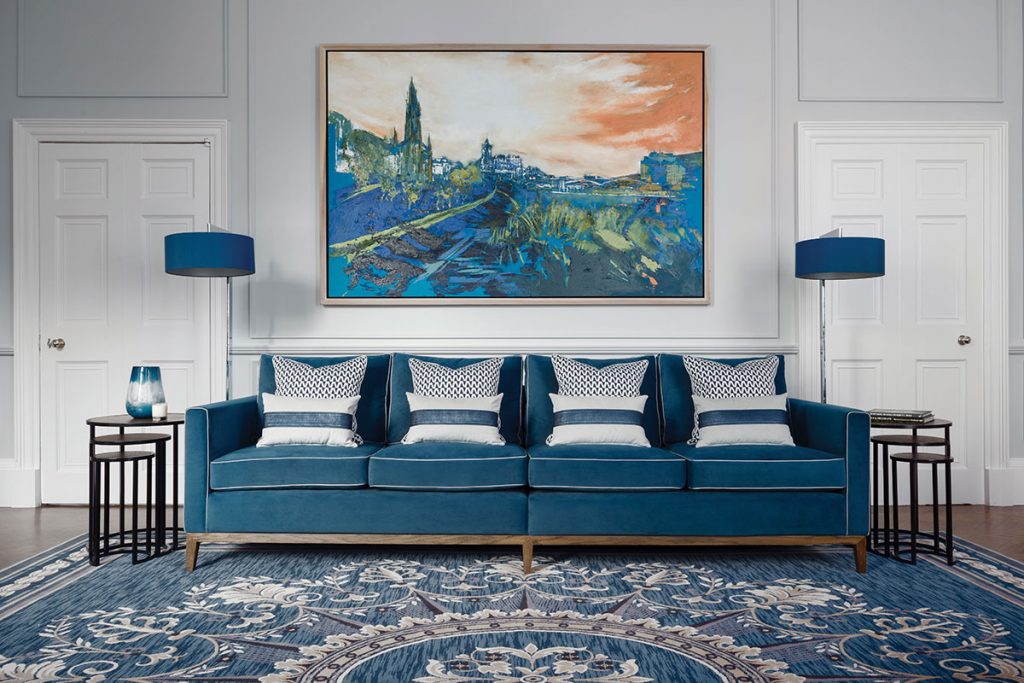
From the sub-basement and wine cellar all the way up to the top floor, there are seven bedrooms, two kitchens and four public rooms, including a spectacular drawing room on the first floor, as well as a variety of smaller spaces.
The owner moved out while the job was in progress (rewiring, replumbing, a new kitchen and central heating system, plus adding en-suite bathrooms), and Duffin and his senior project manager Jonathan Clark-Frost worked with the contractor to steer the project through to completion.
“Our brief was to create an outstanding example of period architecture, fit for 21st-century living but without being over-modernised,” he says. “There was to be some reconfiguration, but it was critical to maintain the provenance and architectural heritage of this Grade A-listed building.”
So began two years of intensive work that saw just about every surface renovated or replaced. All the ceilings and cornices were restored, as were the stunning fireplaces, which were sympathetically modernised using period marbles. “We restored the woodwork and the flagstone flooring too,” says Duffin. “And we sourced beautiful cast-iron radiators. The staircase, balustrade, cupola and decorative plasterwork were all revived. We even restored the client’s own magnificent dining furniture and several other delicate pieces.”
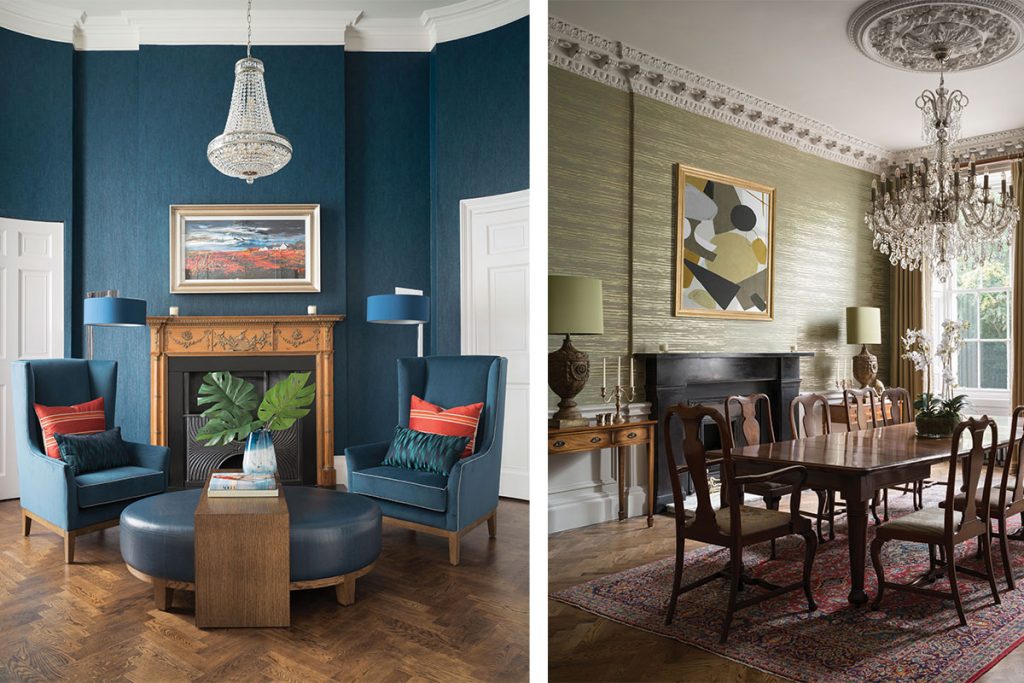
Duffin engaged many of his own specialist contractors, including curtain-makers, decorators and upholsterers, as he sought to give the interior a ‘contemporary classic’ style befitting of the townhouse’s scale, architecture and heritage. Ross Dempster of Charlotte James Furniture crafted the sofas, armchairs, ottomans and tables, all designed by Duffin’s studio.
“All of the fabrics and finishes were considered as an overall design process, so were based upon quality rather than cost or exclusivity,” says Duffin. “We have no issue with selecting plain, inexpensive materials when we need large quantities, such as for the curtains in the drawing room. How these things are made matters more than what they are made of. These curtains are hand-sewn, with contrast trims, and are hung from stunning walnut poles. We then used rare leathers and jewel-like fabrics and finishes on smaller pieces.”
His principal challenge, he says, was to come up with a scheme that was worthy of the house itself, and that’s where the blue came in. “The colour was contentious – practically everyone was wary when we showed them what we wanted to do,” he admits. “But to me it works because it is bold and sociable, dramatic yet restful, and modern but timeless.”
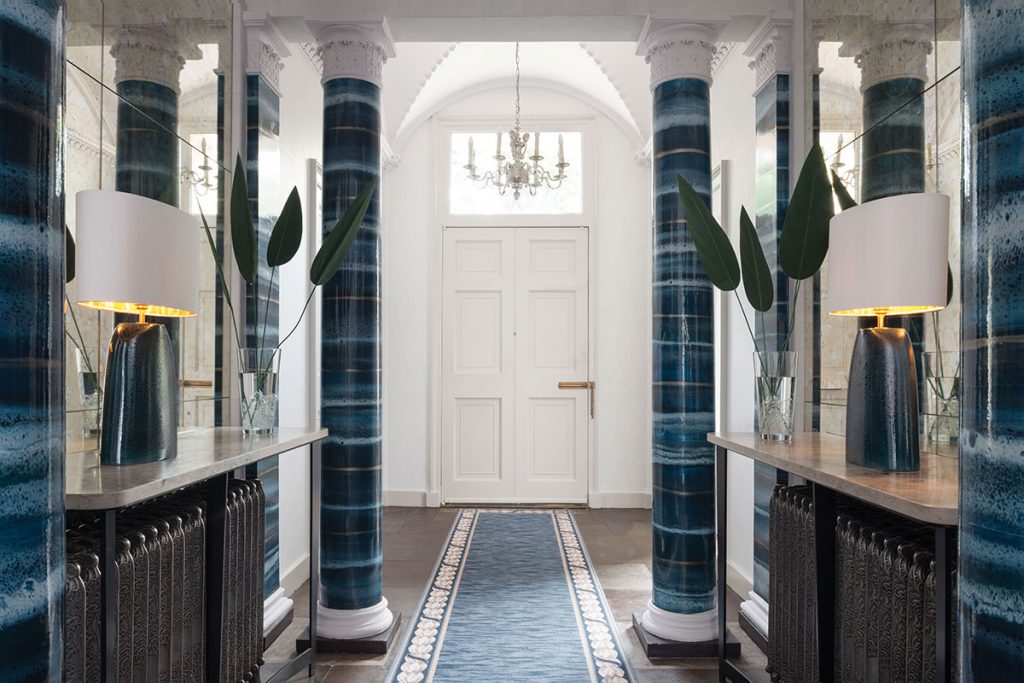
The blue emerged from one of the most striking elements, namely the pillars in the entrance hall. Duffin, who has been refurbishing townhouses and country homes for over thirty years, knows how important it is to get the classical details right. Boldly, he proposed a scheme inspired by one of the palaces of St Petersburg which has blue marble pillars.
He managed to track down a rare handcrafted faux-marble wallcovering from the United States. “It was really tricky to get it right,” he recalls, “especially as I wanted it to be applied horizontally rather than vertically. But the decorators persevered and the resultant finish is crisp, modern and dazzling, with a very historical provenance.”
Once that blue was established as the scheme’s key colour, he was able to extend it out into the rest of the house – up the stair carpet and across the drawing room’s sofas and into the small first-floor sitting room, for example. The drawing room’s vast proportions easily absorb the bold hue, and even feels quite pared-back, with a silvery stone colour mixed in to accentuate the restored panelling, cornices and ceiling. “We copied some of the stunning details of the ceiling into our design for the rug, so it echoes the architecture, and then extended this to the staircase carpet and the runners.”
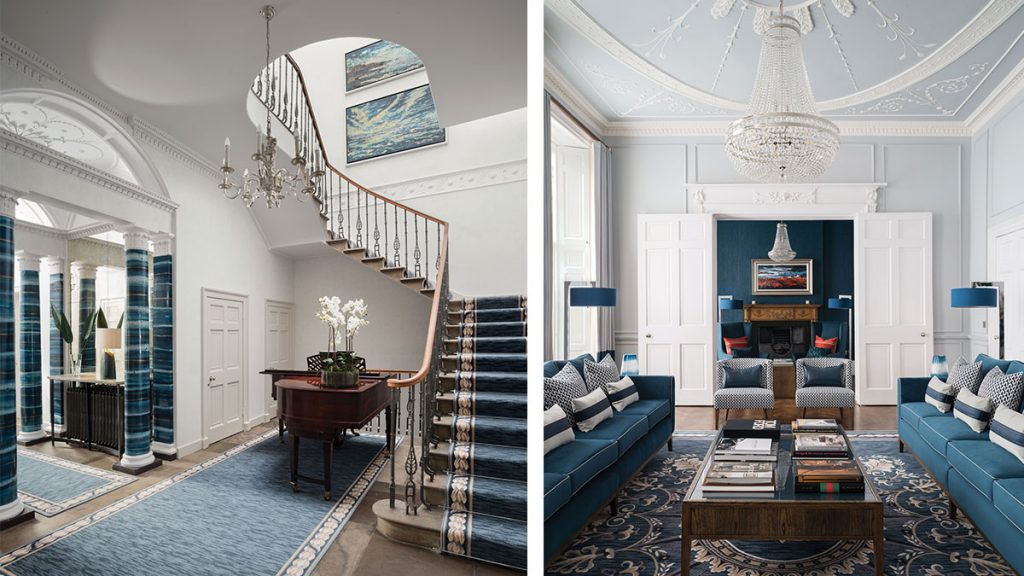
The imperial palaces of Russia were not the only source of inspiration; Duffin is a frequent visitor to Versailles, and loves using mirrored surfaces in his interiors. “The églomisé mirrors in the hall are so unusual, delicate and intriguing. They and the pillars are my favourite parts of the whole house.”
He is also greatly inspired by Scotland, past and present: “We have such rich history but also amazing contemporary designers and artisans – for which I am thankful every day. And I have a brilliant young team. We really encourage each other to push boundaries.”
This skilful blending of new and old is at the heart of his approach and stems from his training. “If you truly understand traditional design and techniques, you avoid ending up with a watery pastiche,” he says. “This is the essential bridge that allows us to design today in buildings dating from more than two hundred years ago.”





